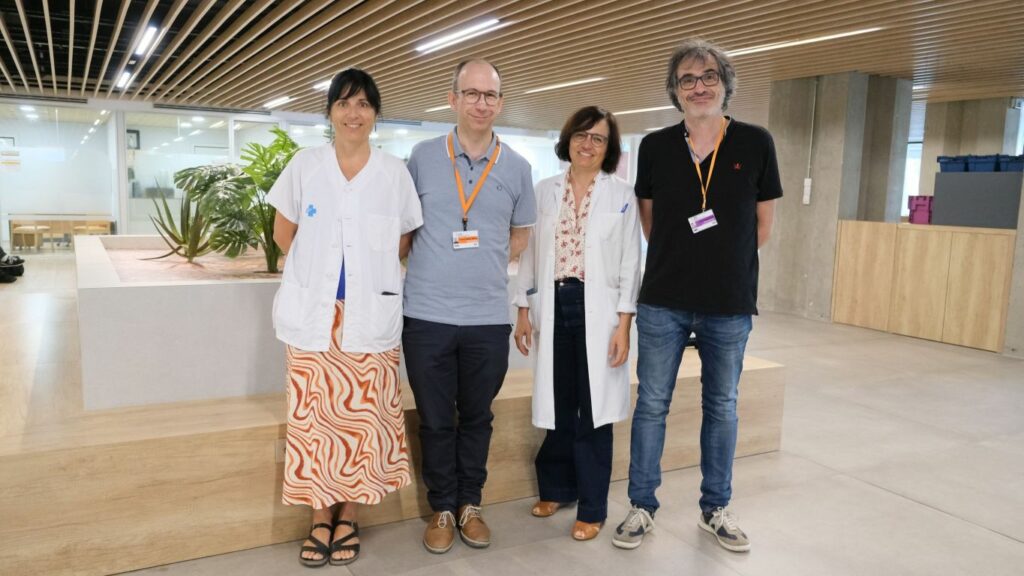A recent study led by Dra. Marta Simó and Dr. Jordi Bruna, principal investigators of the Neuro-Oncology group at IDIBELL, ICO and Bellvitge University Hospital, has analysed the clinical characteristics, serological biomarkers and brain structural changes associated with cognitive impairment (CI) in patients with small cell lung cancer (SCLC). The results highlight a little-known but common problem in cancer patients and provide new evidence on the underlying mechanisms.
The study, funded through the Carlos III-ISCIII Health Institute, has had the collaboration of Dra. Susana Padrones and Dr. Ernest Nadal, also IDIBELL researchers and members of the Lung Functional Unit, and has been recently published in the scientific journal Neurology.
Cognitive impairment, a fairly common reality in lung cancer patients
Researchers have detected that 31% of patients already had symptoms of cognitive impairment at the time of diagnosis of lung cancer. This impairment was accompanied by a localized loss of grey matter in key brain areas associated with memory and visual-spatial skills, as well as a more diffuse affectation of white matter. On a serological level, these patients showed lower levels of brain-derived neurotrophic factor (BDNF), a protein essential for survival and neuronal plasticity.
After chemotherapy treatment, one-third of patients continued to have cognitive impairment. In addition, patients with persistent CI were found to have a higher incidence of advanced disease, suggesting a possible association between tumour burden and CI.
On the other hand, only 10% of patients developed de novo cognitive impairment (i.e., for the first time) after chemotherapy. This indicates a relatively low incidence of the phenomenon known as chemobrain or chemotherapy-induced cognitive toxicity, according to which chemotherapy treatment could cause cognitive side effects. This phenomenon was generally uncommon and mainly associated with tobacco use, since patients with a more intense smoking habit had a higher risk of developing them.
Towards a better approach to cancer-associated cognitive impairment
These findings highlight a hitherto underestimated problem that significantly affects the quality of life of patients with lung cancer. In addition, thanks to the identification of biomarkers that allow monitoring cognitive impairment in these cases, this study may mark a turning point in the clinical approach to this disorder. The research also opens up new avenues of research for its prevention or treatment, as the aim is now, among others, to delve into the mechanisms responsible for the appearance of cognitive impairment in lung cancer patients.
The Bellvitge Biomedical Research Institute (IDIBELL) is a research centre created in 2004 and specialising in cancer, neuroscience, translational medicine and regenerative medicine. It has a team of more than 1,500 professionals who, from 73 research groups, publish more than 1,400 scientific articles a year. L’IDIBELL is participated by the Bellvitge University Hospital and the Viladecans Hospital of the Catalan Health Institute, the Catalan Institute of Oncology, the University of Barcelona and the City Council of L’Hospitalet de Llobregat.
IDIBELL is a member of the Campus d’Excelencia Internacional of the University of Barcelona HUBc and is part of the CERCA institution of the Generalitat de Catalunya. In 2009 it became one of the first five Spanish research centres accredited as a health research institute by the Carlos III Health Institute. In addition, it is part of the HR Excellence in Research program of the European Union and is a member of EATRIS and REGIC. Since 2018, IDIBELL has been an Accredited Centre of the AECC Scientific Foundation (FCAECC).

